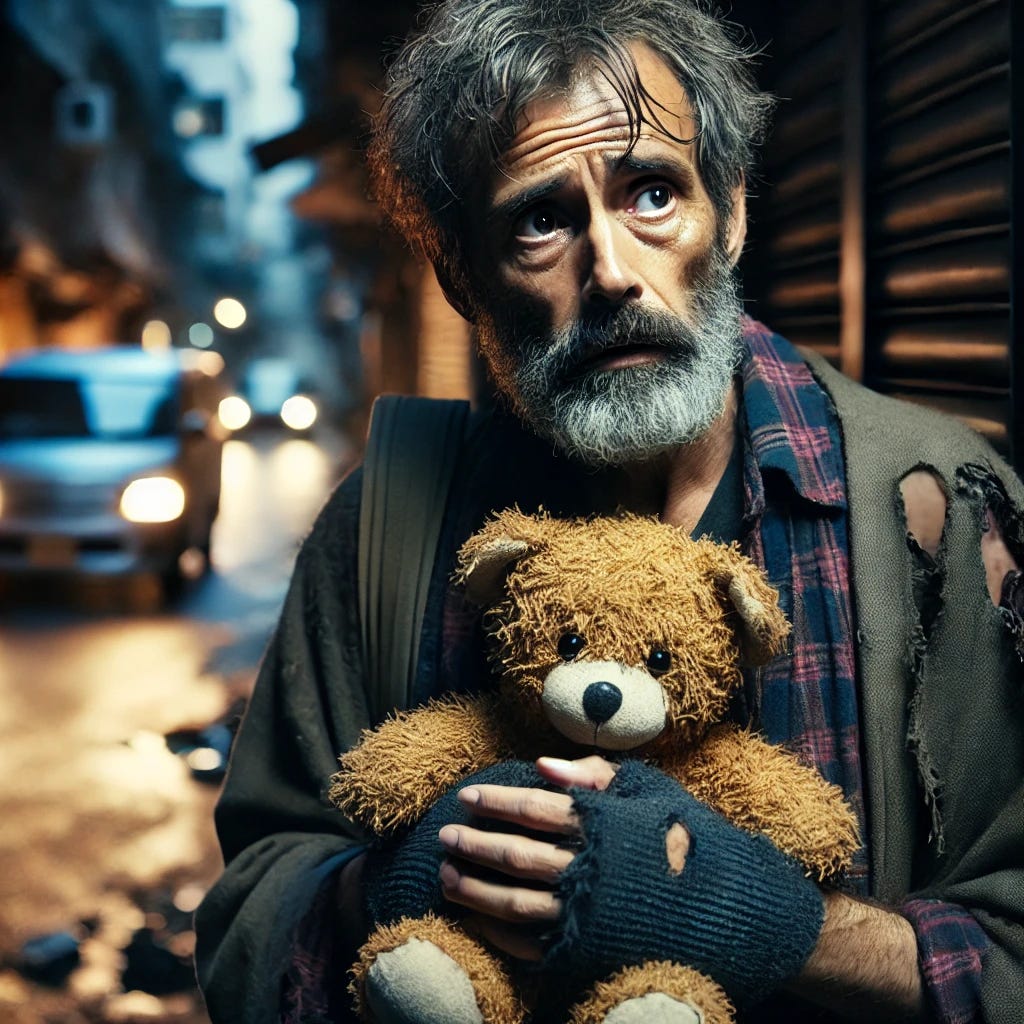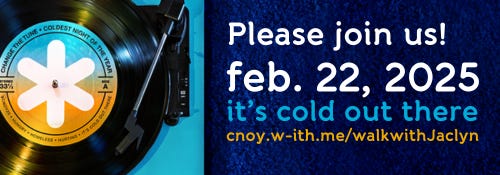BOREAS by Jesse Thistle
from Scars and Stars
There used to be this old man
who visited the drop-in centre
we all went to for sandwiches
and to do our laundry.
The others would whisper
that this old fella used to drop his daughter
on this corner
decades ago
until one day, just after he dropped her off, she was hit by
a car and died.
In despair, he lost everything;
his mind;
his heart;
became homeless.
Now, every day----
if he's still doing it, if he's still alive---
he waits there
searching for her
with her favourite teddy bear in hand
waiting to pick her up. There are all sorts of ways to lose a child - or rather - to lose anybody close to you. There are all sorts of ways people cope, after it happens. The kind of grief, after losing your everything, has wings that sweep in like a giant eagle and pick you up, off the ground, its talons in your shoulders and neck, pain shrieking down your arms and legs, heart swallowed by fear that the ache will always feel this acute, this intense, this deep. And for a while it does. For a while it resonates inside your body like a drum that won’t stop booming. Sometimes sleep is helpful at removing you from it. Other times it’s not. For some grievers, the giant eagle doesn’t ever let up. For some, it becomes more than unbearable, saturating their bodies, swallowing them until there is nothing left but marrow and bones.
Today, I am talking about the darkest shadows.
In the past few months, I have witnessed the anticipatory grief of a parent mourning his child. This is happening to someone I love dearly. For the purposes of anonymity I am naming him - Tony, and his child - Alex. I have asked permission to share their story, hoping that it might give a new perspective to different forms that homelessness can take. Last year, I shared my own personal experience with having no address, which happened in the fall of 2007. You can read about it here. My post both surprised my readers and angered some others. A few argued that I was embellishing, and I wasn’t really homeless if I was sleeping on a friend’s couch. Others showed compassion and gratitude for how I survived that shadowy valley, and eventually grew into a thriving adult. Mostly, I didn’t care what people thought, as I was sharing it to be educational. If someone like me can end up on someone’s couch for two months, anyone can.
After I published my blog, I spoke with an acquaintance who works in Toronto - in their ‘war against homelessness’ department. He shared that most homeless people actually start out on someone’s couch. What happens after the hospitality runs out, is that people end up first suffering in their cold car in some deserted parking lot, or laying in a damp alleyway on a cement mattress, possibly under a sleeping bag that isn’t rated for freezing point temperatures - let alone sub zero. This is sometimes when a homeless person searches for a high, looking for something to make their life more bearable, to avoid the reality of their fate.
Tony raised his daughter by co-parenting with her mother, in an amicable and cooperative way. While their relationship ended because of irreconcilable differences, they chose to avoid the high-conflict divorce-style parenting that can often break a child. They gave her two shelters, enough food to eat, and she had everything she could think to ask for. She was always provided with unconditional love, from at least one of the parents (to the best of my knowledge, as I was only a part of Tony’s life.)
Alex grew into a young adult and began to make her own choices. Extended family dynamics show a history of substance abuse. Are any of our families immune from this? Like the average teenager, she dabbled in booze and weed and eventually she began using recreational cocaine.
A few years ago, Alex suffered her first grief attack when her cousin died suddenly from an overdose. This happened during Covid lockdowns and restrictions. Alex shared very little about how she was feeling, and her father didn’t know how to be there for her. I can see him torturing himself about it now. How could he have let any of this happen?
Do any of us know how to be there for someone who is drowning in grief?
Do any of us have power to pull a body back down to earth, away from death eagle?
Last summer, Alex suffered an even bigger grief attack when her step-sister was killed tragically after living on the streets and becoming indebted to some drug lords. She couldn’t pay her debt so she paid with her life.
I know this is daunting. Even as I write this, I think, is this even real? Does this actually happen? But, I cannot turn my face away. Not from Tony nor Alex. Or the hundreds and thousands of bodies sleeping in alleyways.
Tony didn’t know how to help his daughter and Alex became more and more emotionally distant. He later found out that she was now on the streets herself, using and abusing drugs. She couldn’t cope. Do we think this makes her weak?
“In despair, she lost everything;
her mind,
her heart;
became homeless.”
How many times has grief or deep suffering driven a human being to madness or to the streets?
How often has my own despair had potential to destroy my life?
These are questions that create a cavernous ache in my chest. This is often what leads me to do something. Anything. Like ask friends and family for donations, or walk a snowy five-kilometer walk to show my support to suffering humans like Tony and Alex and her mother.
This Saturday, on February 22nd, I am leading our Team Snowflake - named by my daughter, H - in downtown Oshawa, where a growing population of young and old individuals are living in poverty, without an address, with barely enough to feed or clothe their bodies. This city is a suburb of Toronto and has attracted a booming population of addicts. Sufferers. Our fellow humans. What affects one of us, affects us all.
It isn’t pretty. And somehow Alex has found herself among them.
The good news is that The Coldest Night of the Year (CNOY) is happening Canada-wide with a fundraising goal of $14,000,000. I am personally fundraising to meet our team goal of 3000.00, in support of the greater CNOY challenge. Thank you for all of you who have already donated. We need your help, so that we can help others who are despairing and grieving, and for all sorts of unimaginable reasons, are spending too many nights in alleyways or on homeless shelter cots. You may donate here.
There is still time to join us by walking with a team, or donating at the above link. If you have other suggestions for other ways we can help, I’d love to hear about it by replying to this email and/or clicking on the comments. Maybe you have a story too.
All my best,
Jaclyn xo





So close to home, on so many levels. Your words, your sharing, resonates so deeply and always leaves me in a better place. Thank You.
None of us can fix, repair or prevent all this from occurring, alone.. but, we can each do a part.. a part that helps ‘just a bit more’ than the day before. Thanks J&H&Team.. for taking a ‘large’ part in this event that brings attention to, and funds to those that need to see, feel, absorb some of our human compassion.